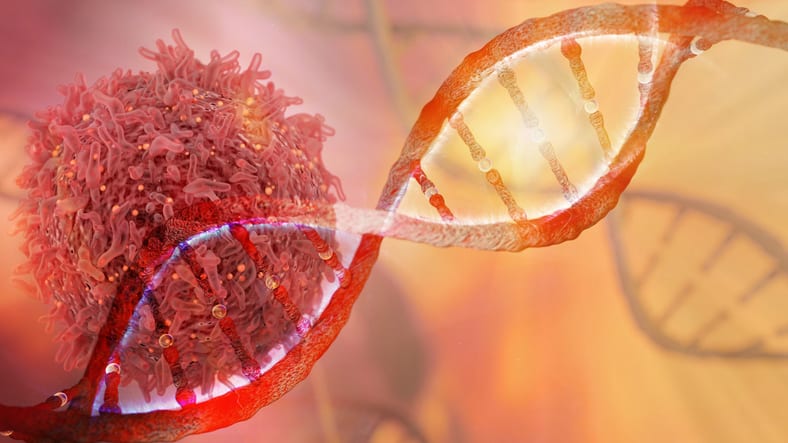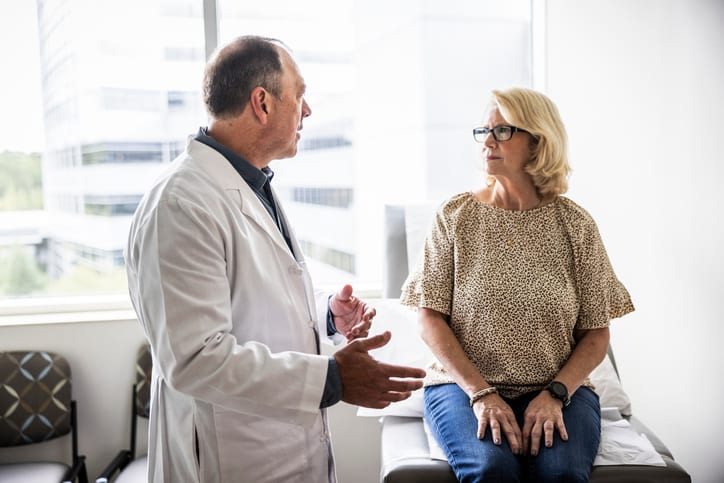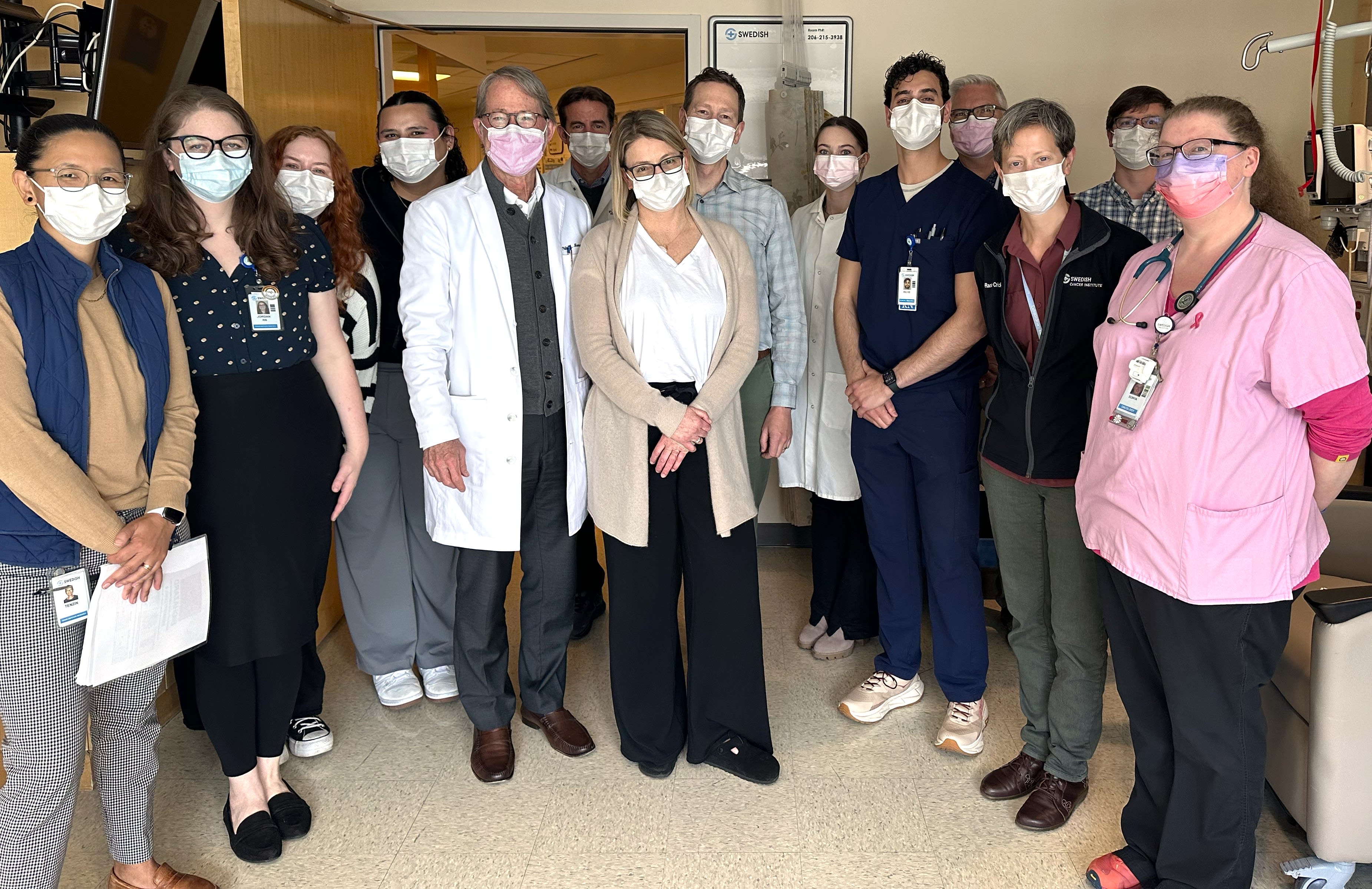Prevention and Testing
Proactive Cancer Screening
At the Providence Swedish Cancer Institute, we believe proactive cancer detection and monitoring are key to delivering the best outcomes for our patients. We promote and assist with expansive cancer screening programs throughout the Providence Swedish network to give our patients the best chance of catching cancer in its earliest stages - when treatment is most effective.

Our Approach to Prevention & Testing
At the Providence Swedish Cancer Institute, we take a comprehensive approach to cancer prevention, combining expert guidance with the latest advancements in early detection. Our team assesses your unique risk factors and creates a personalized screening plan tailored to your health history and needs.
Whether you have a family history of cancer or want to stay on top of your routine screenings, we provide the knowledge and support that you need to make informed decisions about your health.
If you're at higher risk of developing cancer, our High-Risk Screening Program includes enhanced screening options, genetic counseling, testing, and risk-reducing strategies for better early detection and prevention.
Prevention & Testing
Our approach to prevention and early detection helps identify and minimize risks and detect cancer as early as possible. We evaluate your unique history to determine the best diagnostics options for your needs, which may include:
Frequently Asked Questions
We offer a full range of preventive screenings designed to detect cancer early. Screenings are recommended based on your age, risk factors, medical history, genetic test results, and may include:
- Breast cancer screening: Mammograms, ultrasounds, and MRIs
- Cancer genetics & genetic testing: Blood or saliva testing to identify a genetic predisposition to cancer
- Colorectal cancer screening: Blood-based tests, colonoscopies, stool-based tests, and other diagnostic screenings
- High-risk screening: Personalized monitoring for people with increased breast, prostate, ovarian and other cancer risk
- Lung cancer screening: Low-dose CT scans for high-risk individuals, such as current or former smokers
- Prostate cancer screening: Prostate-specific antigen (PSA) blood tests and digital rectal exams (often provided through our urology and/or primary care clinics)
Talk to your doctor to determine the best screening schedule for you and your health needs.
Cancer screenings are dependent on a number of factors, including your age, family history, genetic results, and personal risks. Unless you’re considered high risk, some general guidelines for cancer screenings are:
- Breast cancer: Clinical breast exams start at age 25. Mammograms typically start at age 40. Both are recommended annually.
- Cancer genetics and high-risk screening: Available at any age for those with a family history of cancer.
- Cervical cancer: Pap smears typically start at age 21 and are recommended once every 3-5 years, depending on your age.
- Colorectal cancer: Screenings usually begin at age 45, 40 if you have a family history, and are recommended at least once every 10 years.
- Liver cancer: Screenings are recommended for high-risk individuals – those with cirrhosis or chronic hepatitis B (HBV) infections – once every 6 months.
- Lung cancer: Low-dose CT scans are recommended for adults 50+ with a history of heavy smoking.
- Prostate cancer: Prostate-specific antigen (PSA) testing usually begins between the ages of 45 and 50.
Most cancer screenings are quick and cause little to no pain:
- Imaging tests like mammograms may involve brief pressure.
- Procedures like colonoscopies are typically performed under light sedation.
- Blood tests and genetic testing involve a simple blood draw or saliva sample.
If you’re concerned about pain or discomfort, let your care team know – they can explain what to expect and make sure you’re as comfortable as possible.
Cancer screenings help you take a proactive approach to your health.
Cancer can be a hidden disease in its earliest stages, showing no symptoms until it has progressed. Regular screenings help detect the early signs of cancer — sometimes before it even causes symptoms — and give you the best chance for successful treatment.
Screening is essential for both men and women to help identify risks and prevent serious illness.
If your screening detects an abnormality, it doesn’t always mean cancer is present.
Your doctor may recommend additional imaging, biopsy, or lab tests to determine the cause. Our team explains your results, coordinates the next steps, and connects you with specialists if needed.
We understand that this can be an anxious time, and we’re here to provide answers, guidance, and compassionate support so you feel informed and confident in your care.
Most insurance plans cover routine cancer screenings as part of preventive care. Before your screening, reach out to your provider to confirm coverage. Coverage may vary based on your age, risk factors, and the type of screening you need.
Yes, if you've been diagnosed somewhere else, our world-class cancer experts can provide you with a second opinion.
Getting a second opinion can help you feel more confident in your screening results, diagnosis, and treatment plan. Our specialists encourage additional perspectives if it helps you make informed decisions.
Many patients find it reassuring to confirm their results or diagnosis and explore all available options before moving forward.
News & Info From Our Experts









